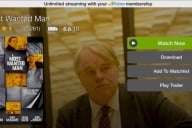You have /5 articles left.
Sign up for a free account or log in.
.jpg)
Let me begin with a disclosure, or perhaps more appropriately, a confession. I attend conferences.
Conferences have played an important role in my career. Beyond standing at the podium or sitting in the audience during presentations, conferences have contributed to my professional development: they have been an important source for new information, a catalyst for new ideas, and have also fostered important professional and personal relationships beyond my local ZIP codes.
Yet I suspect this is a more problematic acknowledgement now than it was several decades ago when I began my academic career. Budget cuts and related financial challenges have wreaked havoc on the institutional funds that once supported, in full or in part, travel costs and conference fees for many faculty, mid-level administrators, and campus personnel. Too, I recognize that only a very small proportion of the academic workforce – faculty, administrators, and staff – attend conferences. Moreover, comparatively few who work in community colleges and financially-stressed public and private, non-profit four-year institutions benefit from institutionally-supported travel and professional development experiences at distant venues.
So it is with appropriate caution that I report that I will be in San Diego next week for the seventh annual ASU GSV Innovation Summit. The Summit brings together a rich array of thoughtful and creative people “from diverse constituencies to create partnerships, explore solutions, and shape the future of learning.” Yes, that is a bold claim. And yes, there are a several big names in big fonts at the Summit this year, including Bill Gates, Frank Gehry, Common, Condelezza Rice, and Sal Khan, among others. But there will also be lot of folks whose names appear in small fonts who are very focused on effective innovation, often framed by a personal experience in K-12 or college classrooms, and fueled by entrepreneurial energy.
I will be working at the Summit, conducting short interactive interviews with some 30 conference presenters and participants about the challenges of innovation in education and the appropriate role of technology in teaching, learning, assessment, and management. (Please CLICK HERE to register for free access to the interviews.)
The goal of these Summit interviews is to accelerate the discussion and the dissemination of educational innovation beyond the 3,500 individuals who will gather in San Diego. We hope to connect Summit presenters and participants with education professionals in schools and on college campuses.
These 15-minute sessions with campus presidents, corporate executives, education entrepreneurs, foundation officers, and public officials are not intended as infomercials. Rather, I’m hoping for thoughtful conversations about the challenge of innovation and candid discussions about what we are doing well and also the urgency of doing better.
The 30 interactive interviews, hosted on the Shindig platform and co-sponsored by eCampusNews and eSchoolNews, will run from noon – 4:00 pm PT (3:00-7:00 ET) on Monday – Wednesday, April 18th – 20th. Confirmed interview participants include:
- Ted Mitchell, Under Secretary of Education, US Dept. of Education
- Michael Crow, president of Arizona State University
- Susan Fuhrman, president, Teachers College, Columbia University
- Deborah Quazzo, founder and managing partner, GSV
- Rick Miller, founding president, Olin College of Engineering
- John Wilson, president, Morehouse College
- Daniel Greenstein, director of postsecondary success, The Gates Foundation
- Bridget Burns, director, University Innovation Alliance
- John Galvin and Elizabeth Broers, Intel Education
Admittedly, I know that few folks can block fours hours a day for three days to watch all these interviews. But we hope the interviews will serve as a catalyst for conversation about innovation, change, and the appropriate role of technology in education – for those who may be part of a live, online audience and also for those who access the interview archives after the Summit.
Your calendar and commitments permitting, I hope you will watch some of the Summit interviews, either live or from the archives. I hope the interviews prove to be informative, engaging, and also a catalyst for thought.
And please let me know if we do well with the Summit interviews, OK?
Follow me on Twitter: @digitaltweed
Hashtags for the ASUGSV Summit: #asugsvsummit #asugsvinterviews






